Politics
The leadership of Mount Athos requested additional information from the police about the action against “Esphigmen”
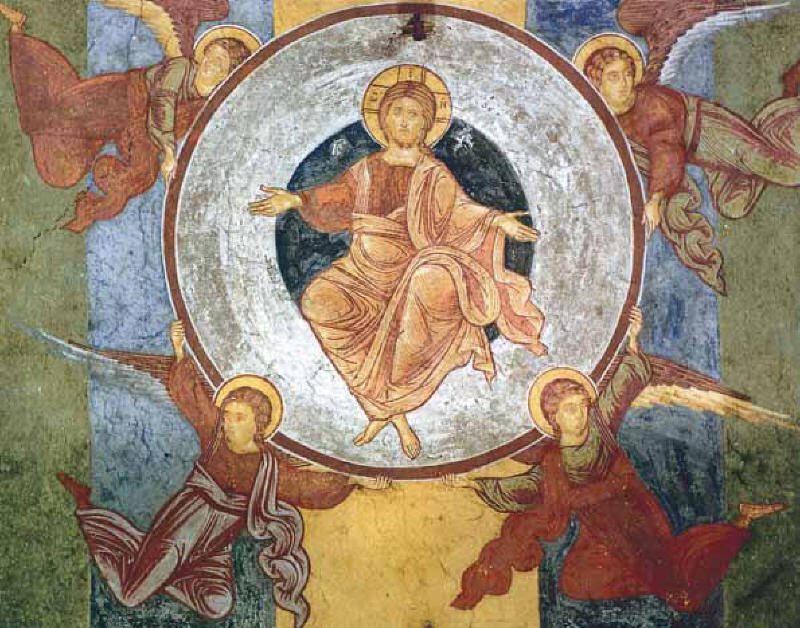
The Greek police have sent a letter to the Holy Kinotis (the community of representatives of the 20 Athos monasteries that make up the leadership of Mount Athos) asking for assistance in complying with a court order to release the Esphygmen Monastery, which has been held by schismatics for several decades .
Kinotis discussed the letter from the Greek police and asked for further information on how the operation would proceed, as well as assurances that there would be no incidents similar to those of 2013 or of December 2006, when footage of bloodied monks from the old and new brotherhood of the “Esphigmen” was circulated by the media, and wounded on both sides were hospitalized after a fierce battle. It was decided to ask the Police Directorate of Athos to clarify its request regarding monasteries to host a large number of police officers for a long period of time, as well as to clarify exactly what the police mean about the use of the roads and the passage of large vehicles on them.
Meanwhile, the deadlines, at least for this period, are very short. Enforcement is prohibited for the period from August 1 to 31, as provided for in the Greek Code of Civil Procedure, so any action by the bailiff to vacate the buildings can be taken until next Wednesday, July 31. Otherwise, the procedure will be repeated from September onwards.
This was reached after two decisions of Greek courts – the Court of First Instance of the regional city of Poligiros in 2018 regarding real estate owned by the schismatics, and the Court of Appeal of Thessaloniki in 2020 regarding movable property. The two decisions were appealed by the Zealots at the Esphygmen Monastery, but the requests for annulment were rejected and made final by a decision of the Supreme Court in June 2023. Now a bailiff has taken over the execution of the decisions, and the Police Directorate of Athos is asking for assistance to that the judgments of the court may be executed and the buildings of “Esphigmen” may be vacated.
So far, the state has made many attempts to restore order on the Holy Mountain, the most dramatic being the attempt in 2013, when it came to incidents. The schismatic monks threw Molotov cocktails at the bailiff and the team that smashed the entrance to the Konak (the monastery’s representative office in Kareia, the administrative center of Athos) of Esphygmen using heavy machinery. These incidents resulted in several monks being sentenced to years in prison, and among those convicted was the abbot of the Zealots, Methodius.
According to the statutes of the Holy Mountain, schismatics who are not part of the canonical Orthodox Church cannot rule any of the twenty monasteries. At the same time, in the monastic republic there are separate Zealot cells inhabited by monks who are not in communion with the canonical Church and are part of various old-calendar factions. The Esphygmen Monastery was officially declared schismatic in 2002 and has since become a banner of the “church resistance” of various movements – Old Calendarists protesting against the ecumenism of the Ecumenical Patriarch, COVID-dissidents, opponents of the “official church” from all Orthodox countries, supporters of the so-called non-systemic parties, populist political movements, etc. His “Orthodoxy or Death” black flag, raised in 1974, became a byword for religious fanaticism. Any attempt to restore order on Athos was met with reactions “in defense of the persecuted for the faith” in Athens and outside Greece. Such a wave of sympathy for the Zealots in “Esphygmen” is now also rising in Russian media, because it is an opportunity for another attack on the Ecumenical Patriarchate, without mentioning that the Esphygmen monks are not in church communion with any local church, including and with the Russian Orthodox Church. The case is used by the zealots themselves as another opportunity to reinforce their image as “confessors”, an image that religious people are very sympathetic to.
Already in October 2022, the Greek newspaper “Kathimerini” wrote about a police investigation in connection with Russian money transfers to private accounts of Mount Athos
The Anti-Money Laundering Department then investigated suspicious money transfers from abroad to individual accounts of monks from Mount Athos. In 2022, the case developed without much fanfare, with a new development received after the start of the war in Ukraine and the sanctions imposed by the West on individuals and legal entities associated with the Kremlin, which has traditionally maintained close ties with the monastic republic.
A source of the publication familiar with the matter revealed that there are at least twenty transactions that in the last twelve months are considered suspicious and are being investigated by the officials of the service. It is about the movement of large sums of money from banks and foreign money transfer companies, and the money ends up not in the accounts of monasteries, which in the recent past were visited by high-ranking Russian officials, but in the individual accounts of monks from Mount Athos. Competent sources explain that these transactions were considered suspicious by credit institutions in the country mainly because they involved transfers of unusually large sums amounting to tens and even hundreds of thousands of euros. In one case, a transfer of more than one million euros was discovered, but the investigation concluded that the money was intended to finance a mission in Africa.
Most of the money transfers investigated are related to funds coming from Russia. The newspaper’s sources clarified that the money found in the monks’ accounts did not come from legal entities or individuals that have been subject to war-related sanctions since February last year. One of the scenarios being considered is that wealthy Russians have decided to move their money out of Russia with the help of Athos monks to preserve their funds in the event of a collapse of their country’s financial institutions or even a freeze on their funds by Kremlin because of the war.
For the same reason, in recent months a number of Russians have undertaken or expressed interest in buying properties in Greece.
“No evidence has emerged to fully corroborate the information that the transactions are part of a broader, organized effort by Russia to infiltrate the Holy Mountain,” a knowledgeable source said. “These efforts are taking place mainly through business circles and political circles,” he added, referring to the recent data of the US intelligence services on the transfer of three hundred million dollars from Russia to parties and politicians in Greece since 2014.
In addition to the funds of Russian origin, several of the cash deposits of monks from Mount Athos, which are the subject of the investigation by the Anti-Money Laundering Department, were made by people from Balkan countries, mainly Serbia, Romania and Bulgaria. The auditors do not exclude the possibility that this is money from illegal activities that is legalized in the form of donations to the monks.
Politics
Joe Biden Exits 2024 Presidential Race, Shaking Up U.S. Political Landscape
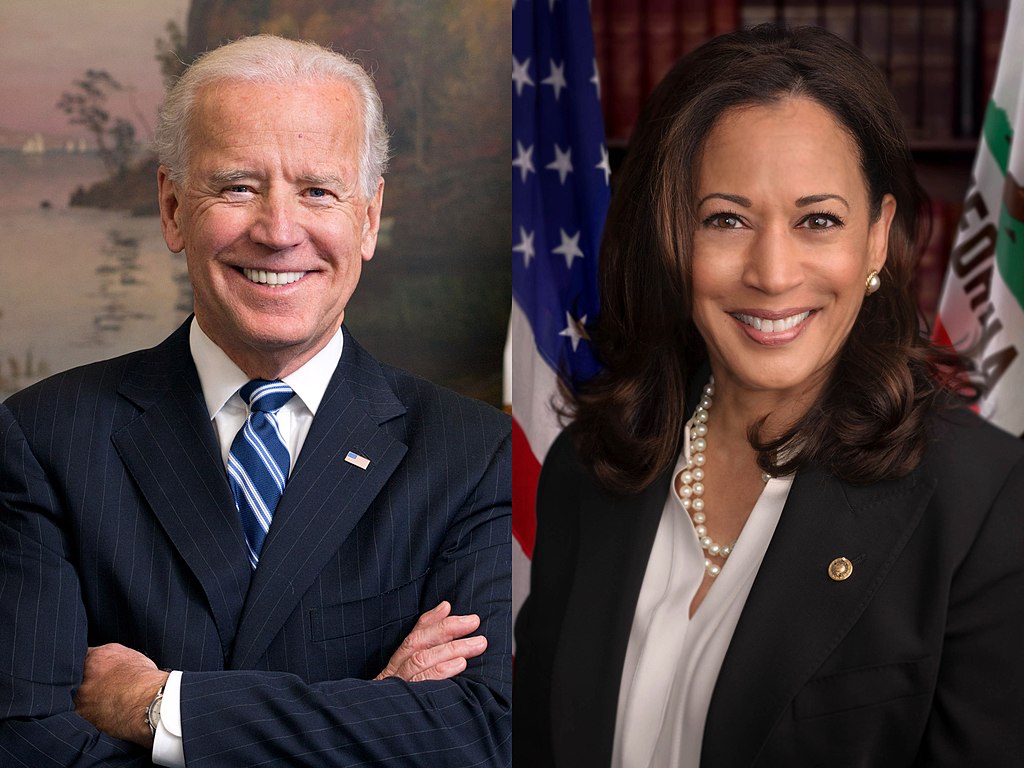
In a turn of events in American politics, President Joe Biden has announced that he will not seek re-election in 2024. His announcement, shared on the media this Sunday afternoon, gives Donald Trump a significant edge in the upcoming presidential race.
Concerns about Biden’s ability to lead another campaign at the age of 81 came to a head after a televised debate with Trump on June 27 during which Biden displayed signs of cognitive fatigue. Following this, prominent Democrats, including former President Barack Obama, openly called for Biden to step aside.
In a message posted online, Biden stated:
“Serving as your president has been the greatest honor of my life. And while it has been my intention to run for re-election, I believe that the best course of action for my party and the country is for me to step aside and focus solely on fulfilling my duties as President for the remainder of my term.”
Biden’s choice was also influenced by recent public blunders during events and appearances, such as at the NATO summit marking its 75th anniversary where he mistakenly referred to Ukrainian President Volodymyr Zelenskyy as “President Putin” and his own Vice President Kamala Harris, as “Vice President Trump.”
The pressure reached its peak when a notable opinion piece by George Clooney, a supporter of the Democratic Party was published in the ‘New York Times’ suggesting that Biden might face challenges in his race against time.
The situation became more complex when Biden tested positive for COVID-19, leading to his recovery at his home in Delaware. Despite plans by the Democratic Party to secure his nomination through a virtual vote before the Chicago convention, Biden eventually decided to step back.
Biden’s withdrawal has triggered discussions about who will succeed him. Vice President Kamala Harris appears to be a contender and could potentially make history as the first female President of the United States. Nonetheless, other notable Democrats like California Governor Gavin Newsom and Michigan Governor Gretchen Whitmer have also emerged as candidates.
This turn of events marks a moment in American politics as the Democratic Party faces uncertainty just months before the 2024 elections. The repercussions of this withdrawal could have far-reaching effects, on both the domestic political landscape and global power dynamics.
Politics
EU Calls for Renewed Commitment to a Unified Cyprus Amid 50th Anniversary of 1974 Division
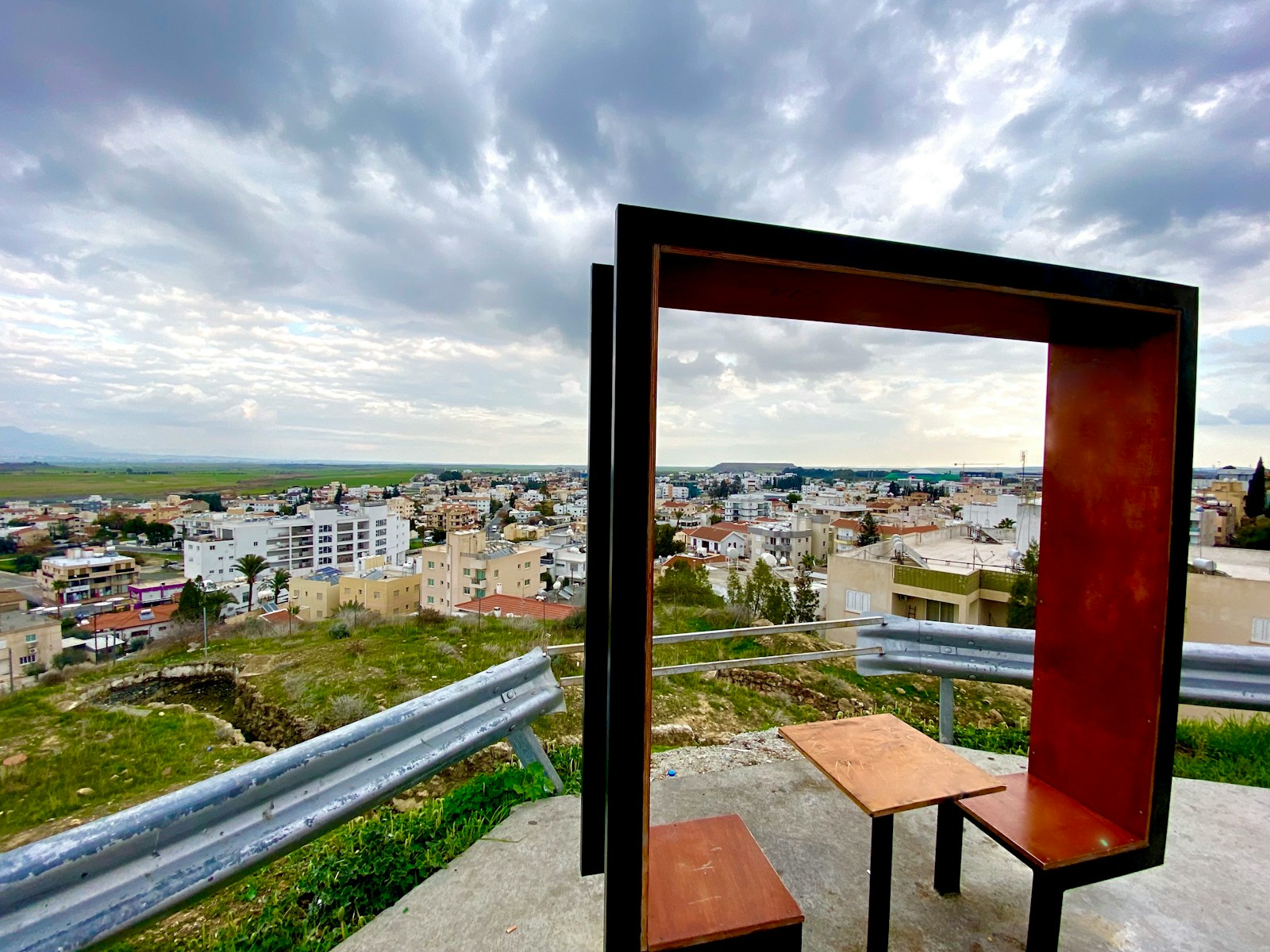
This week marks the solemn commemoration of the tragic events of 1974, a pivotal moment in Cyprus’s history that continues to reverberate half a century later. The European External Action Service (EEAS) has issued a poignant statement, underscoring the enduring need for a fair, comprehensive, and viable settlement to the Cyprus problem.
The Republic of Cyprus, an EU Member State, remains divided to this day—a division that has profound implications for its people. The EEAS emphasizes that this forced separation cannot be a lasting solution and that the hope for a unified Cyprus persists.
The statement calls for a renewed and genuine commitment from all parties involved in the United Nations-led efforts to resolve the Cyprus issue. This includes the two Cypriot communities and, notably, Türkiye. The EEAS stresses that a peaceful settlement must be based on the relevant UN Security Council resolutions, which provide a framework for negotiations.
In light of the broad geopolitical shifts and ongoing crises, the EEAS highlights the importance of collective effort to achieve a settlement. The goal is not only to benefit the people of Cyprus but also to ensure stability and security in the Eastern Mediterranean region.
The statement serves as a reminder of the urgency of the situation and the necessity for all stakeholders to engage constructively in the peace process. As the world commemorates the events of 1974, the call for unity and resolution is more pressing than ever.
The EEAS’s message is clear: too much time has been lost, and the time for action is now. The path to a unified Cyprus requires unwavering dedication and cooperation, promising a better future for all Cypriots and contributing to regional stability.
Politics
Statement by President von der Leyen at the joint press conference with President Metsola following the European Parliament Plenary vote
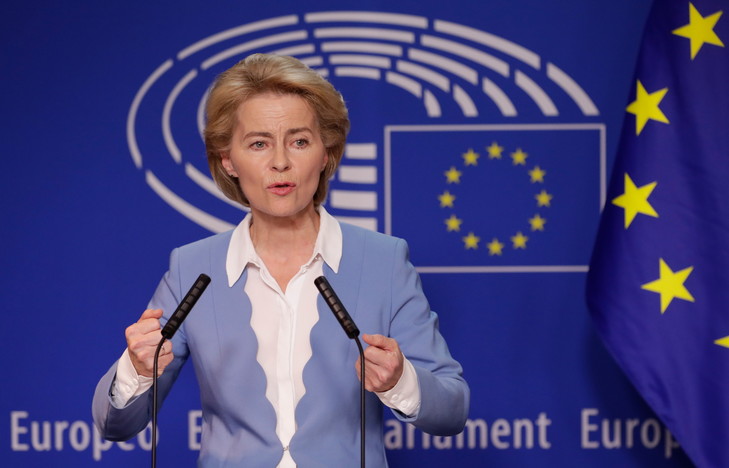
On the eve of a critical European summit, European Commission President Ursula von der Leyen delivered a pivotal speech addressing the continent’s pressing challenges and future direction. Speaking to an audience of policymakers, diplomats, and industry leaders, von der Leyen laid out the European Union’s strategic priorities, ranging from economic recovery post-pandemic to the urgent need for a unified stance on climate change and digital transformation. Her remarks, coming at a time of significant geopolitical upheaval, underscore the EU’s commitment to solidarity, innovation, and resilience in an increasingly complex global landscape.
Here it is:
Thank you very much, dear Roberta,
Good afternoon to everyone,
I guess you have heard my speech, and you might have read the Political Guidelines. So you can imagine that this is a very emotional and special moment for me now. I just want to make three very short remarks before moving on to your questions.
The first one is a more personal remark. I cannot begin without expressing how grateful I am for the trust and the confidence of the majority of the European Parliament. 401 votes in favour – you will recall that last time, it was 8 votes above the necessary majority. This time it is 41, so this is much better. This sends a strong message of confidence. I think it is also recognition for the hard work that we carried out together in the last five years in the last mandate. We have spared no effort. We have navigated the most troubled waters that our Union has ever faced. And we have kept the course on our long-term European goals. I also want to thank you, Roberta, the Group leaders of the democratic forces in the Parliament and all the MEPs for the excellent cooperation including during the last mandate but also for the very substantial exchanges we have had over the past two weeks – after the elections and over the past two weeks. I think this is a very good foundation for the next five years. And I think this was tangible in the debate today.
Second, I want to highlight that I was very happy to have the opportunity to carry out a real, pan-European electoral campaign. As you know, it brought me from Helsinki to Lisbon, from Bucharest to Rome and many different places. I engaged with people from all walks of life. And I enjoyed taking part in the series of TV debates that we had with the other candidates. I think this makes our European democracy much more vibrant.
And finally, let me walk you briefly through the next steps. I will now focus on building my team of Commissioners for the next five years. In the coming weeks, I will ask Leaders to put forward their candidates. I will – as I did last time – write a letter and ask for the proposal of a man and a woman as candidate. The only exception is, like last time, when there is an incumbent Commissioner who stays. And then, I will interview the candidates as of mid-August, and I want to pick the best-prepared candidates who share the European commitment. Once again, I will aim for an equal share of men and women at the College table. The new team will get ready to successfully pass the Parliament hearings. And then I will again seek the confirmation of this House.
Thank you very much.
-

 Sports6 days ago
Sports6 days agoBari still knocked out and last, Modena gets unblocked
-

 Health & Society4 days ago
Health & Society4 days agoThe intoxicated society
-
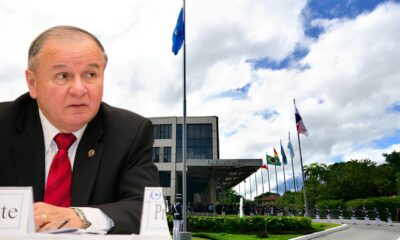
 Politics5 days ago
Politics5 days agoElias Castillo: A Stalwart of Latin American Legislative Leadership
-

 Sports6 days ago
Sports6 days agoMax Verstappen worried, Lewis Hamilton laughs it off
-

 Sports5 days ago
Sports5 days agoInter on autopilot, everything easy with Lecce
-
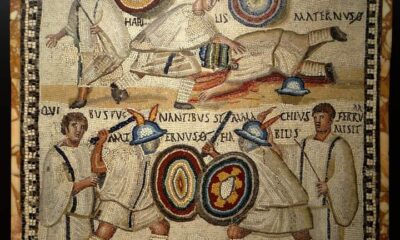
 Health & Society6 days ago
Health & Society6 days agoReligious fundamentalism as psychosis
-
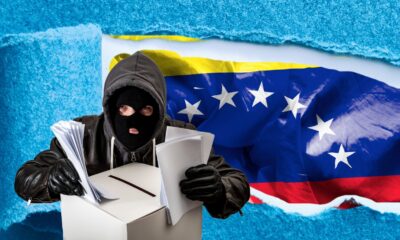
 Politics5 days ago
Politics5 days agoOAS Report Shakes Venezuelan Election Results: Trust in Democracy Eroded
-
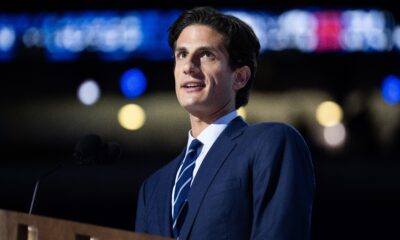
 EU & the World6 days ago
EU & the World6 days agoJack Schlossberg Reacts to Cousin RFK Jr. Ending Campaign and Endorsing Trump









